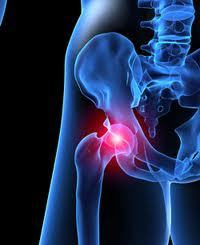As a DePuy ASR and Pinnacle Metal on Metal Hips attorney, I am providing this update. It is in our nature to want the latest and greatest — whether it is a faster car, a smarter computer or a smaller cell phone, and this applies equally to medicine, where we want the newest and presumably safer drugs and medical devices.
But medical innovation can become a trap for the unwary; we are now seeing this playing out with deadly consequences for thousands of patients who are using the 4th generation birth control pills Yaz and Yasmin over the safer 3rd generation older contraceptive pills and those folks who now are the recipients of metal on metal artificial hips.
The metal-on-metal hips, were regarded by hip manufacturers and surgeons as a technological break through over previous designs that used both metal and plastic. Now the FDA (who had been asleep at the wheel) and medical researchers are panicking to determine how many implant recipients have been injured by the devices.
The Food and Drug Administration recently ordered manufacturers of all metal hips to undertake emergency studies of patients. The rush to implant the latest and greatest, and patients’ demand shows how innovation’s siren call led a product promoted as a breakthrough without convincing evidence that it was better or even as good as existing options.
In 2010, DePuy, the orthopedics division of Johnson & Johnson, recalled one of its all-metal hips, the ASR, which was failing at a high rate. Furthermore, another DePuy product, the Pinnacle (which has not yet been recalled) is now under scrutiny for excessive failures. Another manufacturer, Zimmer Holdings, also briefly halted sales of one of its metal models, the Durom. DePuy, Zimmer and other companies continue to deny that there are any problems with their products.
THE modern artificial hip, which was developed in the 1960s, uses a simple design. A metal “ball” made of cobalt and chromium replaces the top of the thigh bone, while a “cup,” typically made of plastic, serves as an artificial hip socket. By the 1990s, the devices were considered highly effective, with studies then finding that implants still worked a decade after surgery in 95 percent of patients.
By 2008, metal on metal hips were used in one out of every three hip replacements, of approximately 250,000 hips implanted annually in the United States. By using a metal cup, which is thinner than a plastic one, a surgeon could implant a bigger ball component, which was assumed to be less likely to dislocate than a smaller one. But recent research, demonstrates that such oversized components may be the reason the devices shed metallic debris.
As the number of affected patients nationwide increased, it became apparent that the devices had not been properly tested. Under F.D.A. regulatory rules, most all-metal hips do not have to undergo clinical trials before sale. They are tested in labs on machines that simulate millions of steps to study the forces exerted by years of motion. According to testing experts, all-metal devices proved worse than metal-and-plastic ones to small variations in how they were implanted, with components sometimes striking together and generating debris.
The devices, as a group, are twice as likely as metal-and-plastic ones to require early replacement, according to data from Australia’s orthopedic registry, one of the most comprehensive databases on implants. Most importantly, damage from debris generated by metal implants in some patients, has caused crippling tissue and muscle damage, and has produced neurological problems, a condition known as metallosis.
It is estimated, about 500,000 patients in the United States may have gotten an all-metal hip, and thousands will have painful early-replacement procedures. The lawsuits against DePuy and other makers of all-metal hips may emerge as the largest product liability cases of this decade.
Information and commentary provided by Dallas Fort Worth Personal Injury Attorney Dr Shezad Malik. The Dr Shezad Malik Law Firm can be contacted in Dallas toll free at 214-390-3189. If you or a loved one has been injured from DePuy ASR, Pinnacle or Zimmer NexGen Knee Recall And Replacement, please fill out our contact card for a free consultation.
 Dallas Fort Worth Injury Lawyer Blog
Dallas Fort Worth Injury Lawyer Blog


